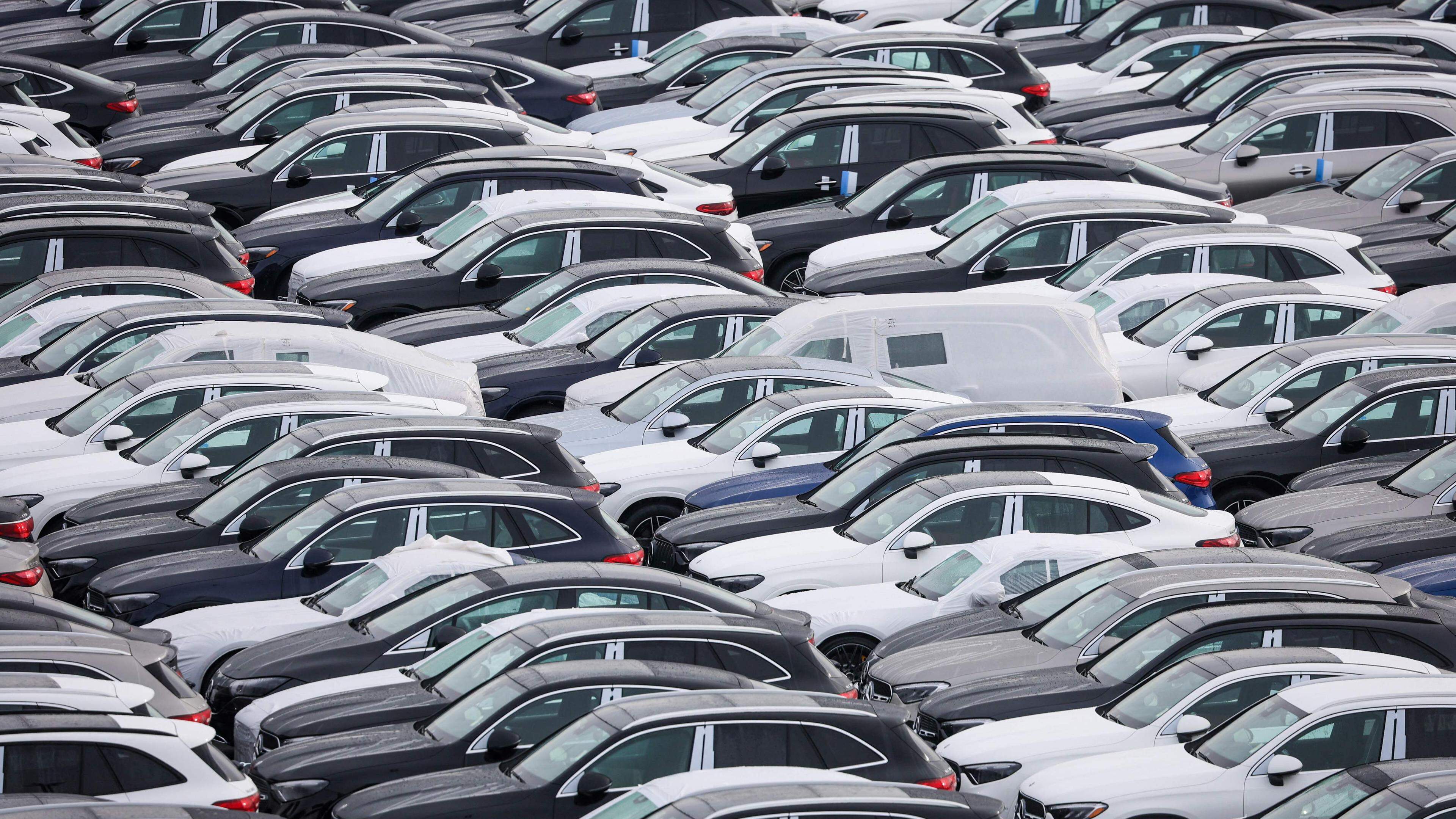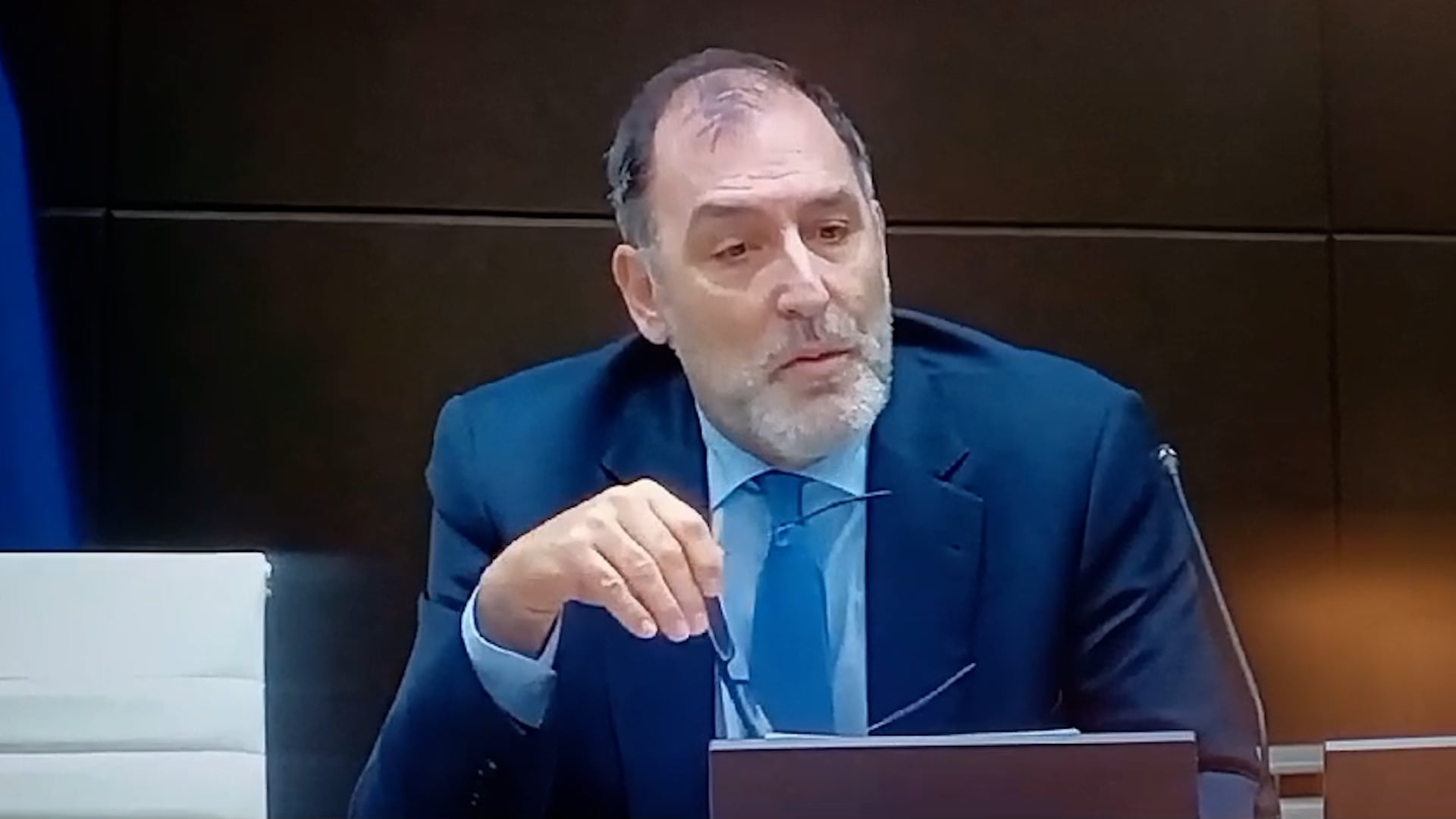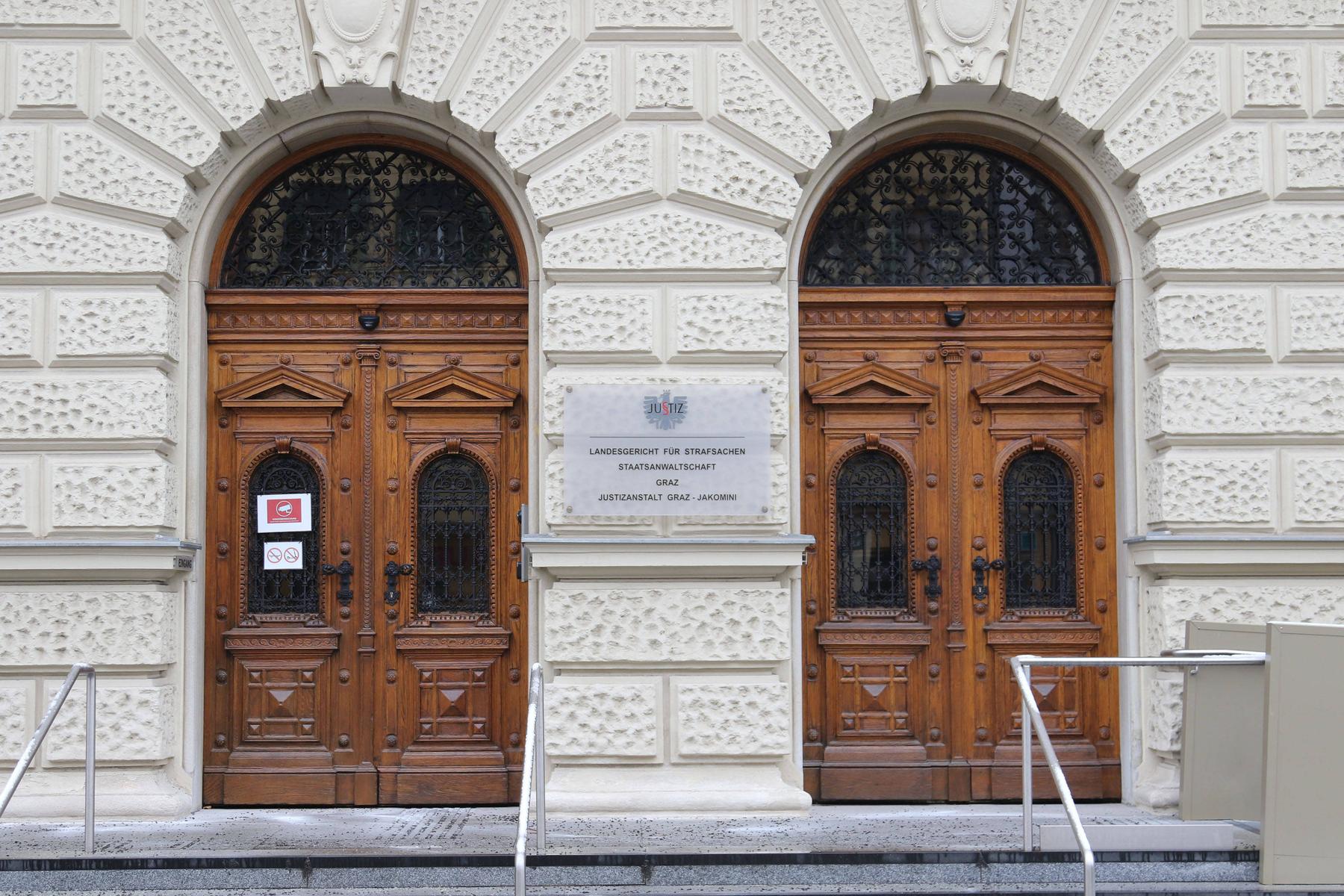US auto buyers assume duty-free cars

The rush to the car dealerships reduced the new car stocks by 24 percent compared to the same period last year, said Jonathan Smoke, chief economist of the market research company Cox Automotive. This is one of the greatest declines in several years. According to the market research company, the car dealers have an inventory that is only enough for 61 days. This is the lowest level in almost two years and a decline compared to the 98-day supply in January.
As soon as these supplies are used up from the time before the introduction of the tariffs, according to Smoke, the sales figure will be « clear ».
Ford: Business of $ 1.5 billion through Trump’s tariffs
The consequences of the Trump-Zölle become clear, although the President of the industry granted a partial breath last week. General Motors expects Trump’s tariffs for this year with losses of up to $ 5 billion. The Jeep owner Stellantis and Mercedes-Benz have deleted their forecasts for the year. Ford is expected to announce the effects of tariffs when it comes to announcing its quarterly results on Monday after the IPO.
The car manufacturers quickly prepare for the next round of Trump’s turmoil. GM and Volkswagen have signaled that they will absorb a large part of the tariffs and at the same time work to compensate for them. Some carmakers screw their buying incentives back to protect their inventory. Favorable financing offers – an important incentive in times of high interest rates – also disappear. According to Smoke, the number of 0 percent loans on the US market has dropped to the lowest level since 2019.
Less cheap offers and lower inventory lead to higher prices
« I’m a little shocked, » said Smoke. « I really thought that this roller coaster ride would only take place at the end of May. » This roller coaster ride is powered by car buyers like David Avetisyan. The banker from Southern California has spent the past two years to plan his “midlife crisis car”. His wife Ester helped him configure a brand new Porsche 911 Cabriolet in Kreideweiß with a deep red « Bordeaux » interior. When they received photos and assembly updates from the Porsche plant in Stuttgart, they already painted their future date nights in their dream car with an open hood.
Then Trump’s 25 percent customs came to imported vehicles. The Avetisyans feared that the high tax would drive the already high price of the sports car from $ 160,000 (141,000 euros) to over $ 200,000 and ultimately let their purchase burst.
We were totally out of the house because of the tariffs because we had fallen in love with this car so much.
David Avetisyan
US car buyer
Instead, they bought a deep black 911, which their Porsche dealer in Santa Clarita already had in stock at the same price. Although it was still possible that the white-red convertible would be delivered in good time before customs came into force, they did not want to take any risk. They opted for the safer variant and took the black 911 from the existence of their dealer. « We were totally out of the house because of the tariffs because we had fallen in love with this car so much, but I didn’t want to pay an additional $ 40,000, » said 50-year-old David in the Bloomberg interview. « So we got a little scared. »
Similar decisions contributed to the fact that vehicle deliveries in the United States rose by 11 percent in March. In April, the annualized pace of sales slowed down to 17.3 million vehicles, after 17.8 million in March. This is still significantly above the approximately 16 million cars and trucks that the Americans bought last year.
The dismantling of the inventory is fueled by some highly advertised discount programs by Ford and Chrysler-Mother Stellantis-two car manufacturers whose inventory has been assessed as too high. Both companies extended their special offers with employee discounts last week. The discounts crank up the paragraph – Ford recorded an increase of 16 percent last month – and empty the retailers at the same time.
Discounts crace the paragraph – and tighten the problems
The market research company JD Power estimates that the tariffs will reduce the US car sales of around 1.1 million units or around 8 percent. The research institute assumes that the increase in car sales in the second half of the year will slow down and in the fourth quarter due to the prices rising due to the tariffs.
Analysts from the research company Black Book assume that an increase in transaction prices by 5 percent will push sales later this year to 12.9 million per year, since the duty -free stocks disappear. Taking into account the current sales increase, this means a paragraph of around 14.9 million vehicles this year compared to around 16 million in 2024.
Car builder sacrifice profit margin to save sales
This presupposes that the carmakers sacrifice most of their profit margin from the time in front of the tariffs to absorb the taxes. According to Black Book, a complete transfer of customs costs to consumers would lead to a drop in sales to 13.6 million vehicles this year.
The managers of the automotive industry try to avoid this result. The Hyundai CEO expects a gradual price increase in the coming months. The CEO of the Autonation AutoHandels chain said that the car manufacturers would increase list prices as the last means. At an exuberant celebration for the presentation of the newly designed Ford Expedition SUV in his work in Kentucky last week, CEO Jim Farley promised to maintain prices – unless competitors increase their list prices.
A Ford Mustang can be seen on May 5, 2025 in a used car trade in Montebello, California. Photo: AFP
« We have to watch what our competitors do, » said Farley, while standing in addition to a series of huge SUVs that cost over $ 80,000. These would have additional costs of $ 5,000 to $ 10,000 per car through tariffs. « Will you collect them? Will you pass them on to consumers? » Added Farley.
Price peace should not be permanent. Analysts assume that inflation in the automotive sector will initially occur unnoticed, since the car manufacturers set their discounts quietly and quietly. The manufacturers may not increase the sales prices on the stickers, but if they delete the purchasing incentives, this effectively increases the costs for the consumer, said Eric Lyman, Vice President of the product and auto financing area at Black Book. « But optically will not change the prices on the website. »
« Beat as long as the stock lasts »
The President of Galpin Motors in Los Angeles advertises with his around 3,000 “duty -free” new cars in stock and encourages buyers to strike while stocks last. Initially, he was not convinced of the discounts for Ford employees, as he feared that they would exhaust his limited stock before the dialies sold and reduce his profit margins.
But after all, he has struggled to do so. The “From America, For America” campaign by Ford had drawn attention to the fact that the car manufacturer produces about 80 percent of its vehicles sold in the USA-and thus more than any other car manufacturer except Tesla. He even resorted to this inventory to buy his 20-year-old daughter a new Ford Mustang before the price increases came into force.
“I don’t have a clear idea of what will happen tomorrow.
US car dealer Boeckmann
Boeckmann admits that it is unclear how the car market will develop if the prices rise after the sale of the vehicles produced before the tariffs are sold. At the moment, the car manufacturers have not yet given any answers.
« I don’t have a clear idea of what will happen tomorrow, » said Boeckmann. « We currently have inventories that are not affected by the tariffs – and we will advertise for that – and then we will deal with what will come next. »







